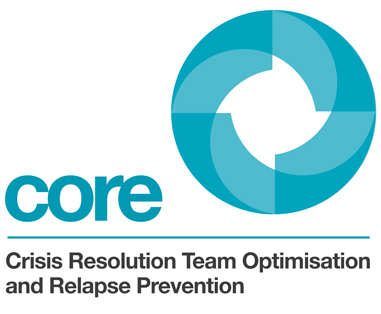Background to Crisis Resolution Teams
Crisis resolution teams (CRTs) provide rapid assessment to mental health service users experiencing a crisis. They aim to work intensively with service users at home as an alternative to hospital admission.
CRTs were introduced nationally in 2001 in order to reduce acute psychiatric bed use and improve service user experiences. There is evidence that, at least in some areas where CRTs have been enthusiastically implemented, they can succeed in these aims. Despite indications of the CRT model's potential effectiveness, there is a great deal of variation in CRT practice and a limited evidence base as to what constitutes best practice.
Aims of CORE study
The CRT Optimisation and RElapse prevention study (CORE) aims to establish evidence as to how CRT functioning may be optimised. The CORE study objectives include:
- Using existing evidence and the perspectives of services users, carers and professionals to investigate best practice in CRTs.
- Formulating a model of best practice for CRTs, and a fidelity measure to assess whether this is achieved.
- Developing and investigating the impact of a resource kit for achieving high-fidelity care.
- Developing, piloting and assessing the effectiveness of a peer-facilitated self-management intervention for people leaving CRT care.
Objectives 1 to 3 are being addressed in Workstream 1 whilst objective 4 is addressed in Workstream 2. The research team are mainly based in the Health Services and clinical research Department of the UCL Division of Psychiatry, though researchers from the University of the West of England are also involved with both workstreams.
 Close
Close


